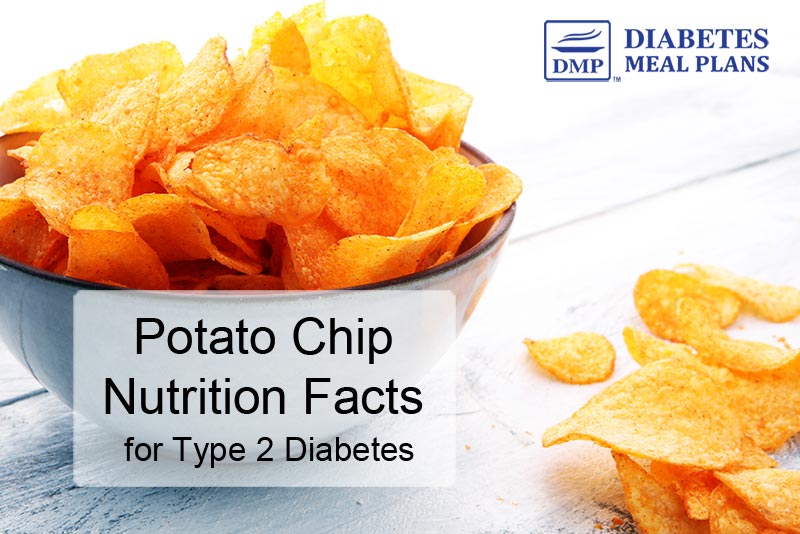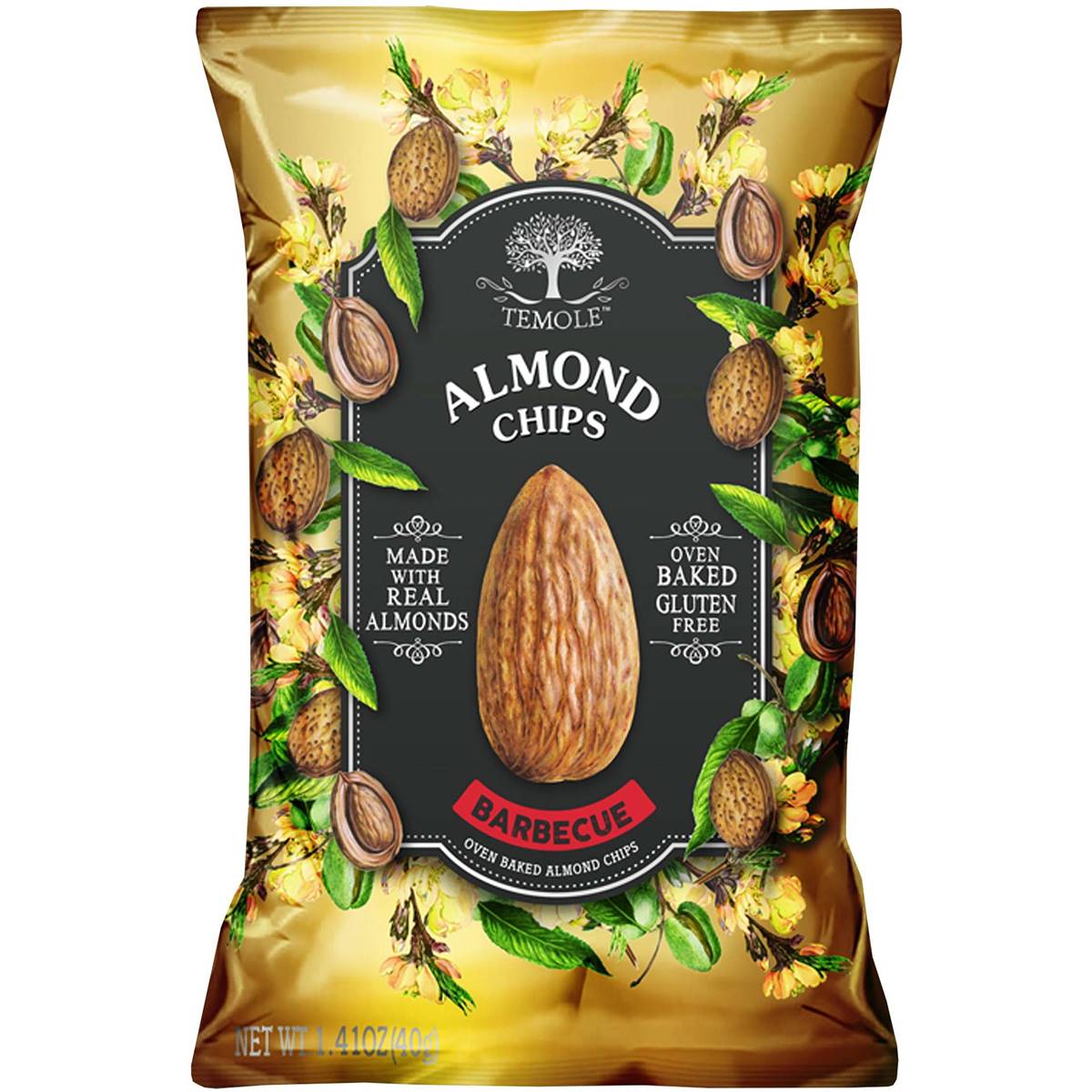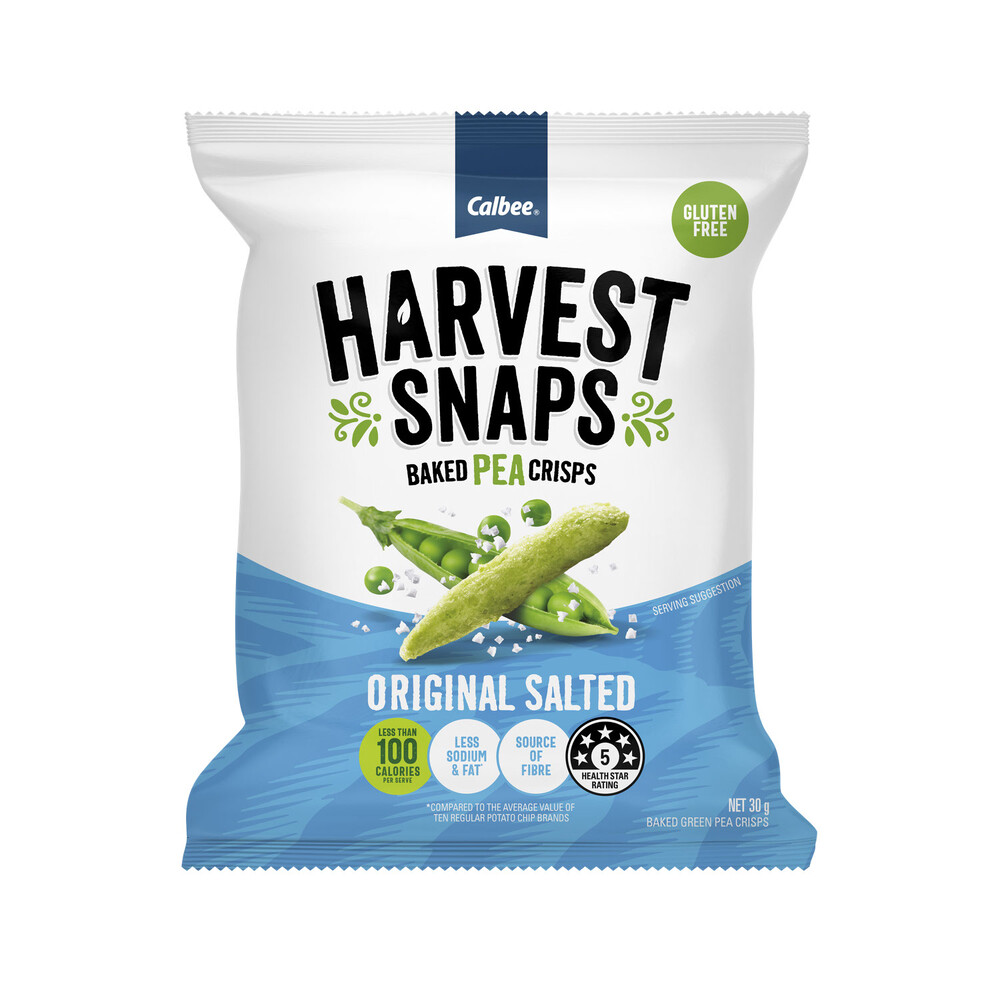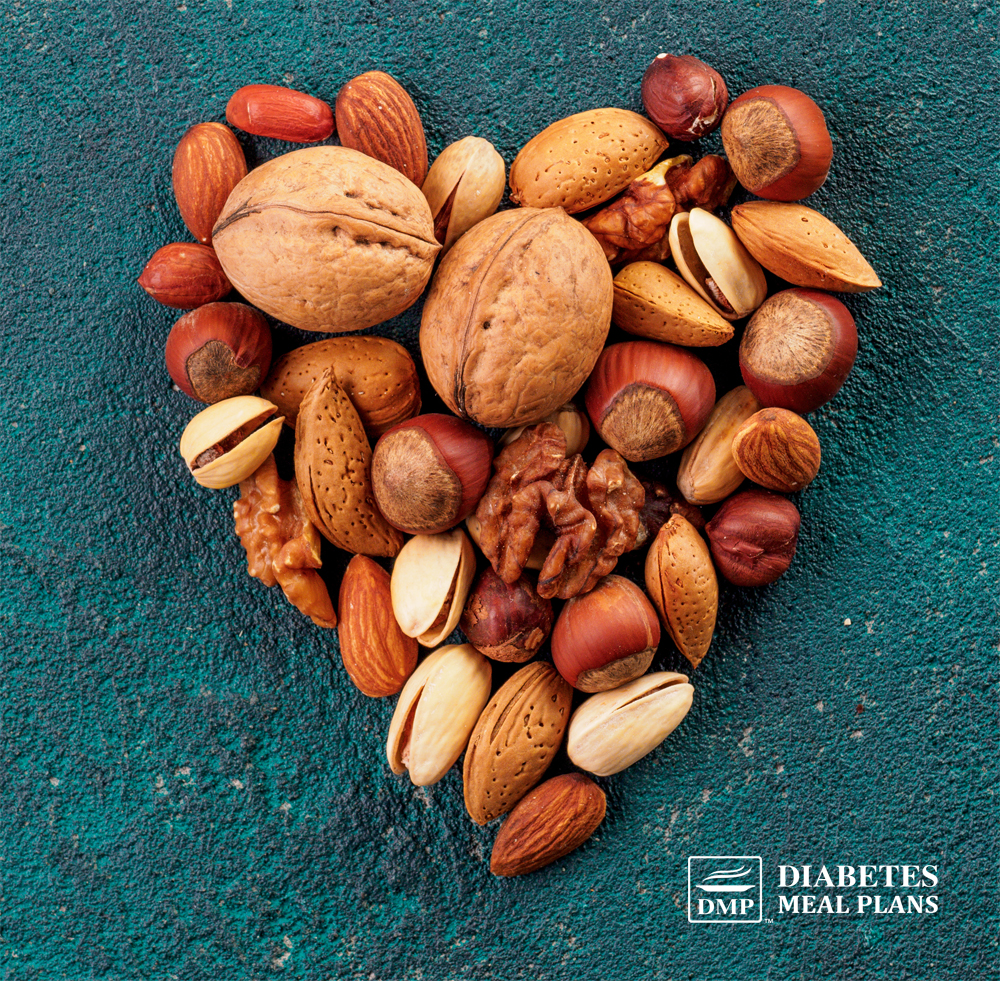We can all agree that chips are a food that’s hard to say no to, and you can never just have one!
For type 2 diabetes and prediabetes, that’s where chips can get you into trouble.
Let’s look at the facts.

Chips Nutrition Facts
Macronutrients
28g of regular potato chips contains about:
- Kilojoules/Calories: 631/151
- Carbohydrates: 15g
- Protein: 1.8g
- Fat: 9.6g
- Fibre: 0.9g
Potatoes are a high carb starchy food, which means that chips are naturally high in carbohydrates.
28g of potato chips is about 10 to 15 chips, and as listed above a serve contains about 15g of carbs. But… let’s face it, who sits down to eat just 10 chips?
It’s easy to eat crunchy, salty, snacks like chips on “auto-pilot” and consume way more than you intended to.
Despite what we may think, science has even shown that chips are not a filling or satisfying food, which makes you more likely to overeat them.
Similar to regular potato chips, other chips like corn chips, BBQ chips, rice chips, and sweet potato chips also contain a lot of carbs, so most standard chips are best avoided altogether.
In addition to being high in carbohydrates, potato chips are also low in fibre. They contain less than 1g of fibre per serving, which doesn’t bode well for your blood sugar control.
The last nutrient to consider is the fat in potato chips.
While naturally-occurring fats in coconuts, avocados, dairy, and meats are good for you, the cheap vegetable oils used to deep-fry chips can be inflammatory. Inflammatory fats increase insulin resistance and worsen blood sugar levels.
Micronutrients and Chips
Chips made from potatoes still contain small amounts of beneficial micronutrients even after they have been heavily processed and fried in oil. For example, a serving of regular potato chips contains 14% of your daily value of Vitamin C and 10% daily value of Vitamin B-6.
But clearly, this does not counteract for the high carbohydrate content and the overall low quality fats that you’ll generally be getting in those chips.
Instead, reach for whole foods like vegetables and clean animal products to get all the vitamins and minerals you need.
Comparing Different Chips Nutrition Facts
When you compare different chips you’ll see that they all contain similar amounts of carbs per serving, and remember how small a “serving” is, just 10-15 chips.
Potato chips: about 15g carbs per serve (10-15 chips)
Corn chips plain: about 14-15g; cheese flavour like Doritos: about 16.5g carbs (about 11 chips)
Sweet potato chips like Pringles: about 15g carbs, or Kettles are 14.1g per serve. Vege Chips Yellow Sweet Potato Deli Crisps are similar at 12.4g carbs.
BBQ chips like Lays: 16g carbs per 28g serve, about 10-15 chips.
Sunrice Protein chips: Half a 50g pack, 15g carbs and not that much protein, 6.5g.
Veggie chips like Infuzions Veggie Straws; 10g carbs per small 15g serve, or The Natural Chip Co. Veggie Rings: 11.2g carbs per small 18g serve.
Tortilla chips like Tostitos Tortilla Corn Chips: about 16.5g carbs per serve (14 chips)
Research Facts on Chips and Type 2 Diabetes
It’s no secret that processed snack foods like chips don’t have much of a place in a healthy diet, especially not a blood sugar-friendly diet.
- The consumption of fried foods has been associated with many negative health consequences such as weight gain and obesity, cardiovascular disease, high blood pressure, hypercholesterolemia, and an increased risk for type 2 diabetes.
- Diets rich in processed food, including potato chips are associated with higher risk of metabolic syndrome/ prediabetes.
Best Type of Chips to Eat
So what kind of chips can you eat with diabetes?
Well, you’ll want to be avoiding regular potato chips, corn chips, soy crisps, wholegrain waves, vege chips, rice wheels; and watch out for things like tempura veggie crisps or cauliflower or broccoli puffs, as these often contain rice or flour and are still high in carbs.
Best Chip Options Coles and Woolworths
The following options are lower in carbs, higher in overall nutrition.
Temole Almond Chips, BBQ or Sea Salt, 7.5g protein, 9.4g carbs – available at Woolies.
For something chip-like, Pork Krackles are low in carbs (Under 0.5g) and high in protein 34g. You can get these at both Coles and Woolworths.
Roasted Edamame provides great nutritional value with 23g protein, and 6.4g carbs.
Harvest Snap Original Peas Crisps – literally green peas crisped up and flavoured, which come in at 5.9g carbs per serve, 3.2g protein, 4.6g fibre – available from Coles. Available in Salted, Salt & Vinegar and Chilli flavours.
Roasted Fava Beans by the Happy Snack Company, a little higher in carbs at 11.2g, but with 6.4g protein and 1.5g fibre.
Macro Cauliflower Chickpea Chips or Macro Spinach Chickpea Chips, again, a little higher in carbs at 11.6g, but with 2.5g fibre and 3.4g protein- available at Woolies.



And, don’t forget nuts!
While nuts aren’t a chip, they can still deliver that crunch, along with high quality nutrition that satisfies the appetite and aids in blood sugar control.

Best Chip Options Amazon
Quest Tortilla Style Protein Chips (Ranch Flavour), do make a great chip alternative. They contain just 5g carbs and have a high amount of protein 19g! This makes them perfect for maintaining balanced blood sugar but still satisfying that crunchy munchy craving.
Quest chips also come in a variety pack with Nacho cheese, Chili Lime and Loaded Taco flavours.
Takeaways
Skip the traditional chips as they are high in carbs and low in nutrition and quite simply, they won’t help you achieve better blood sugar or health.
But, there are more suitable, more nutritious chip-like options available at Coles, Woolworths or Amazon.
Treat yourself with quality nutrition to the best of your ability, as your health will thank you for it!

